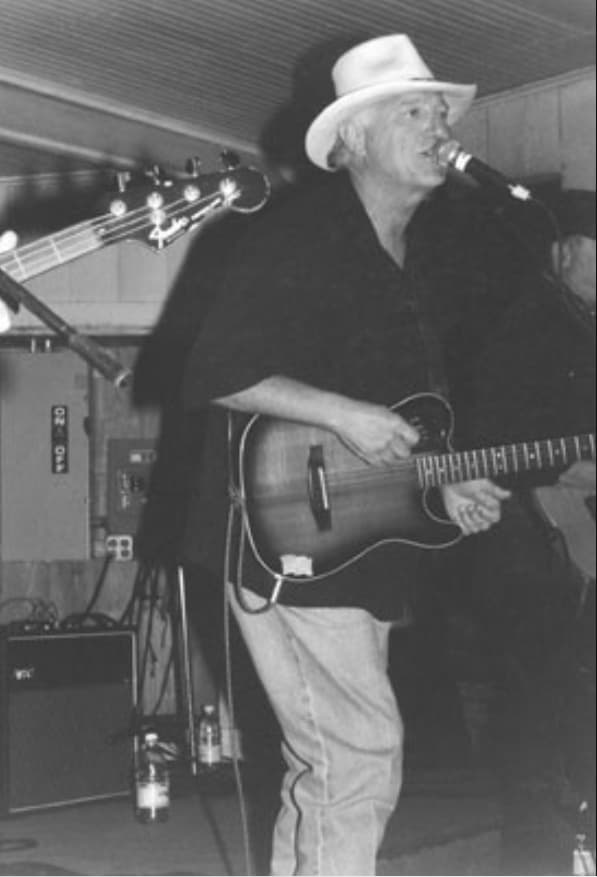
A Raw and Rowdy Anthem of the Outlaw Country Spirit
The Ballad of the Good Ol’ Boy: Jerry Jeff Walker’s Gritty Masterpiece 🤠
There are songs, and then there are anthems—those ragged, soul-stirring recordings that don’t just entertain, but capture the very essence of a time, a place, and a people. “Up Against the Wall, Red Neck,” as performed and popularized by the quintessential troubadour Jerry Jeff Walker, is undeniably one of the latter. Released in 1973 on his album Viva Terlingua!, this track wasn’t just a hit; it became a cultural flashpoint, a defiant, humorous, and oddly tender snapshot of the burgeoning Outlaw Country movement that was shaking up Nashville’s polished veneer. While it never ascended to the very top of the Billboard Hot 100, its impact was measured in the roar of the crowds and its longevity as a barroom singalong, not mere chart points. Still, for the record, the version recorded by David Allan Coe—which arrived a bit later and capitalized on the song’s growing notoriety—managed to climb into the Top 20 of the U.S. Billboard Hot Country Singles chart, a testament to the tune’s undeniable resonance within the genre.
The true history of this song, however, is a fascinating web of authorship and interpretation. While Jerry Jeff Walker is inextricably linked to the track, the original composition is actually credited to Ray Wylie Hubbard, another of the Texas music scene’s great, unpolished poets. It’s a classic example of how a great song finds its definitive voice. Walker’s rendition, imbued with his characteristic swagger and lived-in authenticity, took the tune from a mere observation to a powerful cultural statement.
At its core, “Up Against the Wall, Red Neck” is a brilliant piece of social satire, cloaked in the guise of a rowdy protest song. The “Red Neck” in the title isn’t a simple pejorative; it’s a character, a symbol of the working-class, often misunderstood, and sometimes rough-around-the-edges American man who feels alienated from the mainstream, whether it’s the cosmopolitan elite, the folk-rock establishment, or the slick, commercialized country music coming out of Music Row.
The lyrics humorously, but firmly, lay out this character’s frustrations—his run-ins with authority, his distrust of the establishment, and his love for simple, honest pleasures. It’s a call for the “good ol’ boys” to be heard, to be respected for who they are, imperfections and all. The song meaning is therefore two-fold: it’s a rebellious cheer for the underdog, and simultaneously, a sly, winking critique of the very stereotypes it embraces. The song’s genius lies in its ability to be sung by those who identify with the “Red Neck” as a badge of honor, and by those who appreciate the ironic commentary on class and culture.
For those of us who came of age in the 1970s and 80s, the raw, live energy captured on the Viva Terlingua! album is unforgettable. The sound isn’t perfect; it’s a little loose, a little loud, and wonderfully real. You can practically smell the stale beer and cigarette smoke of the Guthrie, Oklahoma music venue where it was recorded. It evokes memories of cheap beer, long drives, and finding freedom in a world that often felt too restrictive. Jerry Jeff Walker was the rambling spirit we all wished we could be, and this song was the soundtrack to that yearning.
It stands today as a classic of the Outlaw Country genre, a cornerstone alongside works by Willie Nelson and Waylon Jennings. More than fifty years later, when you hear that simple, driving acoustic guitar intro, followed by Walker’s gravelly, knowing delivery, it doesn’t just take you back to a moment—it transports you to an entire era of musical honesty and cultural rebellion. It’s a shout into the void that still echoes with the sound of a good time and a refusal to conform.